South Africa. Much More than Tricks.
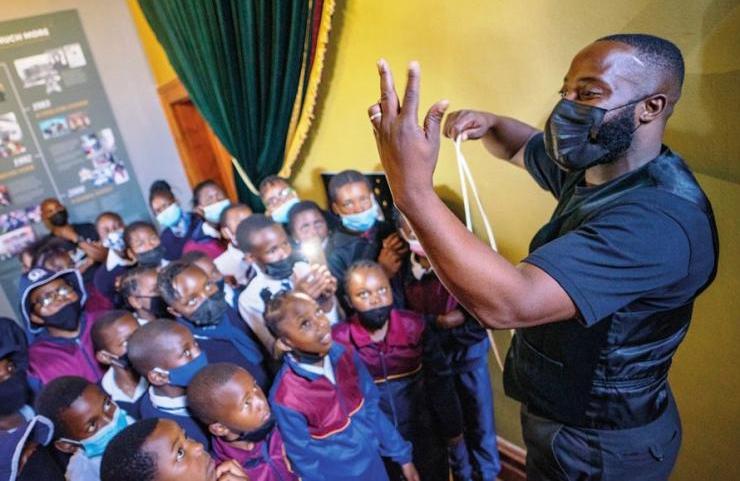
Fantasy and imagination but above all, ingenuity. 200 apprentices from different walks of life train their hands to demonstrate that magic ‘makes the impossible, possible’.
It is difficult to escape illusion and optimism when you walk through the gate of the large colonial-style house that houses the College of Magic, in the Claremont district of Cape Town. It’s not Saturday – the day when the more than 200 future magicians spend the whole morning practising card tricks, ventriloquism, juggling or visual effects – but the activity is frenetic due to the visit of a group of students from the Bright Student Learning Centre.Magic, which in many African countries is often associated with witchcraft or bad luck, is an entertainment art that requires conscientious practice, as well as the ability to transport viewers into a changing world, without much explanation. “Adults don’t believe in magic” is one of the arguments most often repeated by the centre’s graduates, now instructors or volunteers, to underline the generosity with which children and young people instead contemplate it. “It’s a demanding audience, very attentive, but also receptive and expressive of what surprises them”, says Thando Rala, one of the instructors, as he collects the gadgets from his latest performance.
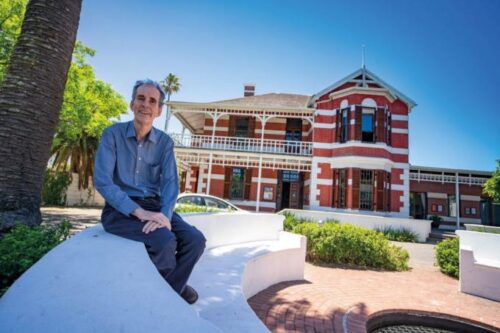
David Gore founder of the College of Music. (Photo: José Luis Silván Sen)
“And do you see the blue, the green, the yellow, do you see them?” asks the magician Sinethemba Bawuti who studied at the College of Magic in 2005, and today being a magician has become his profession, during the show, and continues: “One, two, three, abracadabra… Say your colours and they will appear … What happens?! The magic makes all those colours seem connected”. Completely surprised, the audience applauds him and asks for an encore.
The College of Magic is much more than a place to learn to do magic, “It has been a school of life since it was founded in 1980”, explains David Gore, founder and director of the initiative. “During apartheid, the meaning of school was very special because we had young people of different social classes, origins, and skin colours…and we did it against the law. Now, in the middle of the 21st century, it is still relevant because here they mix, they meet socially, coming from different areas and from opposite economic strata. Their common interest is magic, and this makes them tolerant and understanding of their differences. This is the real magic of the place”, he adds.
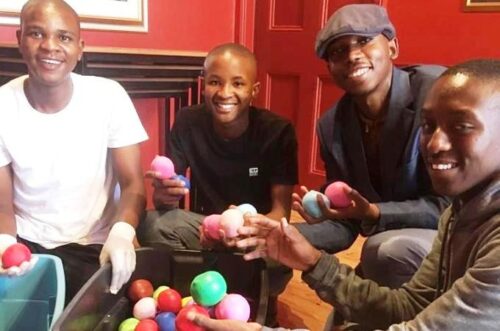
Students from The College of Magic. (Photo: The College of Magic)
It is unprecedented that for more than a decade the apartheid regime did not close the school, “the government turned a blind eye, Gore argues, because they were unable to comprehend the degree of coexistence we had fostered through learning from something they considered trivial. Today – Gore adds – the project is still very necessary because South Africa has to face enormous challenges such as poverty, AIDS and criminal violence. Young people come with many difficulties and challenges. Magic makes them socialise in a different way. We not only teach them how to do tricks, but we give them the opportunity to perform with the support of social educators. We also provide them with their basic diet and training. We try to help so that they may become the protagonists of the future of our country”.
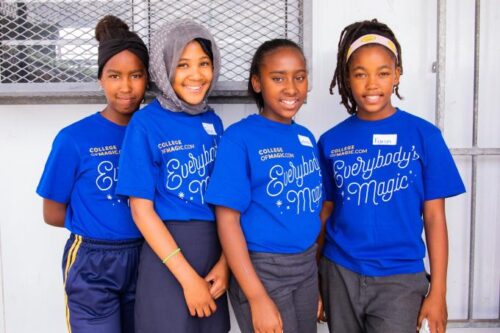
Learners from Kleinberg Primary School graduated from the College of Magic school. (Photo: José Luis Silván Sen)
For Gore, magic is a combination of what “leads us to wonder about things” with the surprise of the unknown, which is not easy to understand because it is outside the parameters we are used to. “The magician is capable of generating illusion, of bringing surprise into people’s lives. Magic is a tool for young people and also a skill that is easy to ‘carry’ and share in one’s community. It is also based on a universal language, which is why it also becomes the hope we need in South Africa”.He continues: “When people think of magic, they think it’s something small, silly, but I’ve found it to be a powerful tool in young people’s lives. There is a transformation in our graduates, whether they live by magic or participate in television broadcasts or theatre. We have many personal success stories”.Through the “Magic in the Community” program, they select boys and girls in the suburbs or in rural areas to see if they are interested in magic. Students from poor families are helped. In fact, says Gore “we want to help those who live in the poorest areas of the city. While not wearing a uniform, they are asked to dress as elegantly as possible. To do this, they provide them with costumes that make them feel different, artists, ‘capable of doing magic’”.
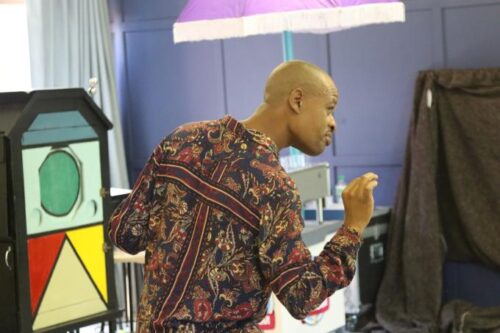
(Photo: The College of Magic)
Magician Bawuti points out that “magic is everything, it’s a weapon to escape the bad things in life, something that allows you to grow as a person. Putting a smile on someone’s face is very rewarding and you help other children by showing them that they can do other things besides playing football or video games and that there is something called magic that empowers them and can change their lives forever just as it happened to us”.
After the show in the school theatre, we asked him how he felt, and he assured us that the tricks have become his own therapy: “I’m fine, the magic heals me. When you get the chance to go on stage, everything changes. I feel like I am floating on air after every show in which I perform thinking, perhaps, that what they saw was important to some of them”, concludes Bawuti, who discovered College of Magic while living with his family in the suburb of Kayelitza. Six years later he was travelling to Las Vegas (USA) and Austria to attend shows.The magician Rala started at 17 – the maximum age they can enter, the minimum is 10 – and now she is one of the volunteer graduates who support the training. “Magic has positive values; it teaches you many things. When I started learning to do magic and act, I was able to overcome the shyness that kept me from being myself. By entertaining other people and bringing joy to other children, I end up forgetting my problems”.
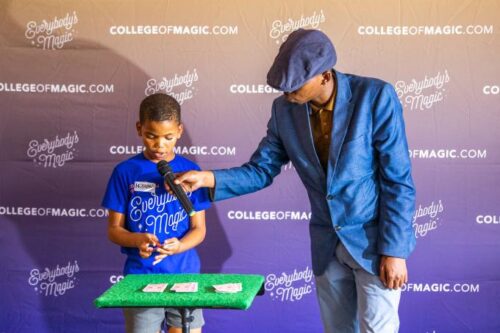
(Photo: The College of Magic)
“What would life be like without magic?”, we ask those who accompany us on the visit. The answer is unanimous: “Very boring.” Of course, they also mention the sacrifice of training an average of seven hours a day to advance and be able to appear in contests or auditions. “I like to mix magic with theatre. What I enjoy the most is tricks with boxes where people disappear or ‘break’ them. You have to be quick and you know you did well because of the astonished face that the audience can’t suppress,” Rala adds.
Khanya, on the other hand, poses as a professional conjurer. “Magic for me is making the impossible possible. For example, to be successful in life, you have to break those established concepts and achieve the impossible through practice, until you achieve it”, he explains, noting that magic is used to generate self-confidence, to build peace and, above all, to establish a single channel of communication with people. (Sinethemba Bawuti with a group of students visiting the College of Music. Photo: José Luis Silván Sen)
Carla Fibla García-Sala



